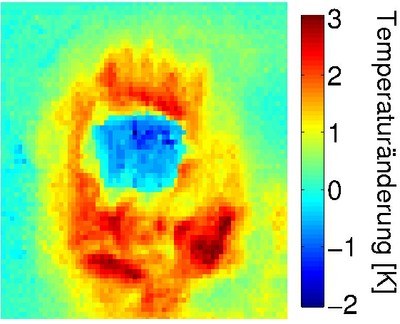Our group conducts experiments on the following topics: thermodynamics of light, as Bose-Einstein condensation of photons in microcavities, and the statistics and dynamics of photons in tailored potentials. We also investigate topology and quantum simulation with ultracold atomic gases.
We are always looking for Bachelor, Master, PhD students, and postdocs. For more information, see here.
Latest news
Dr. Kevin Peters awarded Walter Benjamin Scholarship from the DFG
During the Walter Benjamin project, Dr. Peters will conduct research on photon Bose–Einstein condensation and non-equilibrium quantum optics. The project focuses on the condensation of photons directly into quantum-entangled states, using optical cavity experiments combined with laser spectroscopy, real-time detection, and theoretical modelling. The work aims to advance the understanding of driven-dissipative many-body quantum systems and to establish new approaches for generating and controlling quantum states of light.
Statistics at the limit: Our paper on thermodynamics in two-state systems is published
Thermodynamics is usually associated with large systems in which many particles can be distributed across a large number of states. But even systems in which few particles can be distributed across only two states follow thermodynamic laws, as the work of Christian and Andreas shows. This may enable the construction of novel light sources in the future that combine the advantages of lasers with those of incandescent lamps.
Periodic driving of a condensate reveals elementary excitations of photons coupled to a bath
A photon Bose–Einstein condensate (BEC) is a state of light in which photons occupy the ground state of an optical cavity when equilibrating with a material in thermal equilibrium — for example, molecules at room temperature. Due to the incoherent coupling between photons and molecules, the system exhibits new resonances, which can be linked to elementary excitations of the coupled system, which allow to gain deeper insight into the intricate link between coupling, drive and dissipation.
The Kennard-Stepanov relation has been verified for Xenon-Krypton mixtures
To realize a Bose-Einstein condensate of photons in the vacuum-ultraviolet regime (VUV), Xenon is a good candidate, provided its spectral lines are broadened by collisions using a second noble gas. We were able to show that Xenon provides promising transitions, whose upper state can be populated by two-photon transitions. We also were able to verify that the Kennard-Stepanov relation is fulfilled in a a Xeneon-Krypton mixture, a vital ingredient for the realization of a thermal photon gas.
Our research

© H. Brammer/U Bonn
Erbium Experiment:
Topology with Ultracold Atoms

© AG Weitz
Rubidium Experiment:
Quantum Simulation

© U. Vogl / AG Weitz
Ultradense Gases: Laser Cooling & Spectroscopy

© AG Weitz
Spectroscopy of High Pressure Gases:
Novel Light Sources in the VUV

© T. Damm/U Bonn
Photon Bose-Einstein-Condensation: Statistical Physics

© C. Kurtscheid/U Bonn

